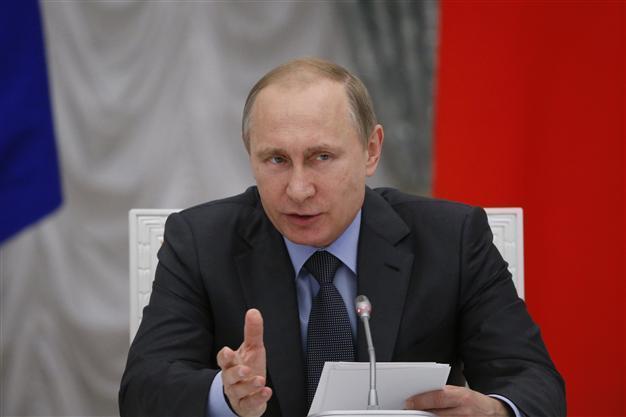Russian prosecutors on July 28 declared the US Congress-funded National Endowment for Democracy the first "undesirable" foreign group under a controversial new law to ban overseas organisations deemed a threat.
The move is part of what critics say is a Kremlin drive against civil society, fuelled by growing anti-Western rhetoric over the Ukraine crisis.
"Taking into account the overall aim of the endowment's work, prosecutors came to the conclusion that it presents a threat to the constitutional order of Russia, its defence capabilities and state security," the prosecutors said in a statement.
They accused the American non-profit organisation of using local NGOs to undermine elections and organise political rallies in the country.
"The National Endowment for Democracy participated in work to declare the results of election campaigns illegitimate, to organise political demonstrations aimed at influencing decisions taken by state institutions and to discredit service in the Russian armed forces," the statement said.
The decision -- which now needs to be rubber-stamped by the justice ministry -- will see the endowment barred from opening offices in Russia or funding any groups or individuals in the country.
Prosecutors said that in 2013 and 2014 the foundation gave funding worth around $5.2 million (4.7 million euros) to local organisations.
The move comes as Russia and the West are locked in their worst standoff since the end of the Cold War over the crisis in Ukraine.
Russian officials led by President Vladimir Putin and state-owned media claim that the West is trying to sow revolution in the country after last year's ouster of a Kremlin-backed leader in Kiev.
Critics say authorities are whipping up anti-Western hysteria over alleged foreign meddling in a bid to further cement their political grip on Russia.
The controversial new law could see Russian activists jailed for up to six years for "participation in the activities" of any banned organisation.
Washington said it was "deeply troubled" by the action against NED and urged Russia to uphold its commitment to respect freedom of expression and the rule of law.
"This designation only heightens our concern that the so-called 'undesirables' law will further restrict the work of civil society in Russia," State Department deputy spokesman Mark Toner said.
"This action is a further example of the Russian government's growing crackdown on independent voices and another intentional step to isolate the Russian people from the world."
NED says it receives congressional funding to bolster organisations "working for democratic goals in more than 90 countries."
The organisation slammed the decision from the prosecutors and said the aim of the undesirables law was "to intimidate and isolate" Russians.
"The law on undesirable organizations is the latest in a series of highly restrictive laws that limit the freedom of Russian citizens," the foundation said.
"NED remains committed to supporting human rights and fundamental freedoms throughout the world."
On its website it lists a number of Russian organisations that it has supported including anti-corruption groups, those working on freedom of association and human rights organisations.
Earlier this month, Russian senators compiled an official proposal to blacklist 12 foreign NGOs, including the Endowment.
Also on list was US-based MacArthur Foundation, which last week announced it was closing its Moscow office.
On Tuesday, a top Russian rights group supporting torture victims said it is being forced to close after being branded a "foreign agent", but that it will relaunch under a new name.
International rights groups have branded the undesirable foreign organisations law the latest step in an official campaign to clamp down on civil society during Putin's third term.
Moscow passed a law in 2012 following mass protests against Putin's return to the presidency, forcing local NGOs that get international funding to register as "foreign agents".
Dozens of organisations including leading human rights groups have been hit by the legislation, which evokes Soviet-era anti-US rhetoric.
